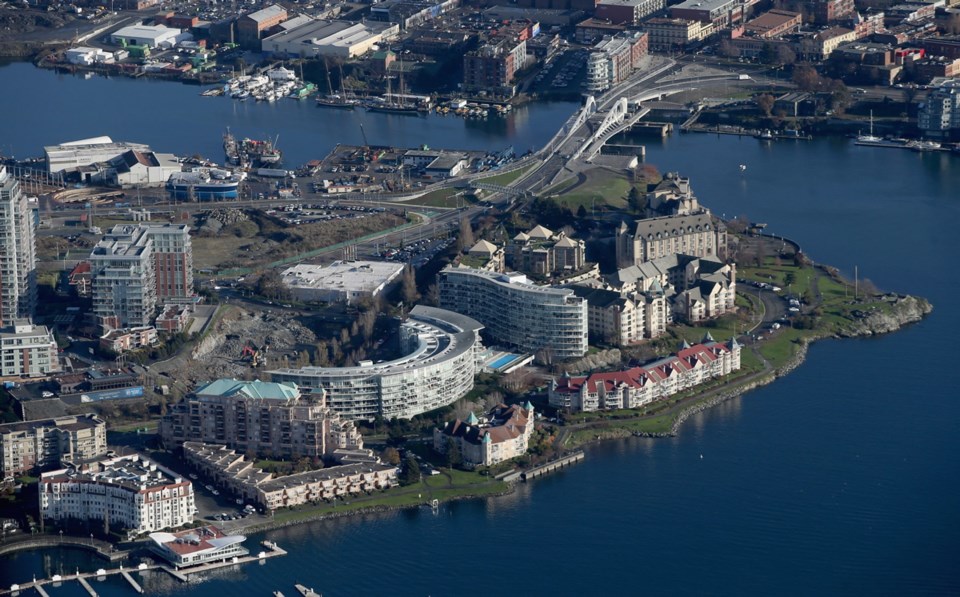Most of the homeowners paying B.C.’s new speculation tax are from other countries or provinces, but almost 20 per cent of those hit so far are also British Columbians with second homes, according to new provincial data.
The Ministry of Finance released the first figures Thursday on who paid the speculation tax by the payment deadline of July 2.
So far, 12,029 owners have paid the tax. However, about 23,000 people still have not completed their declaration or exemption forms, which could significantly change the makeup of the figures in the weeks ahead.
“I wanted to make sure we got preliminary information out as soon as we can,” Finance Minister Carole James said Thursday. “That’s why we put the information out we had today. I know that people are interested.”
The preliminary data shows far fewer than the government’s originally estimated 32,000 homes have had to pay the tax, yet revenue to the provincial treasury is already much higher than expected due to the high value of real estate taxed.
Although the government had also originally estimated two-thirds of those paying the new tax would be British Columbians, so far the figure is much lower.
Of the 12,029 owners that have paid the tax so far:
• 38 per cent (4,585 people) were foreign owners who live outside of Canada, but own B.C. property that is vacant more than six months of the year.
• 27 per cent (3,241 people) were satellite families, defined by B.C. as a household in which 50 per cent or more of the income comes from outside Canada.
• 20 per cent (2,410 people) were B.C. residents, who own more than one property that is vacant more than six months of the year.
• 13 per cent (1,555 people) were Canadian residents who live in provinces outside of B.C.
• Two per cent (238 people) were defined as other (such as properties held through corporations and trusts, developers, often with multiple owners).
James said the figures show the tax so far, though contentious in some communities, is a success.
“It shows we are getting to what we want to get to,” she said. “If people aren’t paying the tax, that’s a plus, because it means they are renting their places out and it means we have more housing to deal with the crisis. We have to go back and remember why we brought this tax in . . . because we have a housing crisis.”
The government introduced the tax in 2018 to try to crack down on foreign-owned properties in B.C. that are left vacant during a rental and affordable housing crisis. However, it also applies to British Columbians who own several properties in certain parts of the province and leave them vacant more than six months of the year, raising criticism that it is both a vacation home and wealth tax.
The speculation tax applies to Greater Victoria, Nanaimo, Lantzville, Kelowna and West Kelowna, Metro Vancouver (excluding Bowen Island, Lions Bay and Electoral A), Abbotsford, Chilliwack and Mission. Homeowners can obtain an exemption if they rent their properties for at least six months of the year.
The figures so far are for 2018, when the tax was 0.5 per cent of the total property value. It also includes the first three months of 2019, in which the levy rose to two per cent for foreign owners and satellite families, and 0.5 per cent for Canadian citizens.
Revenue brought in from the tax was $115 million, higher than the $87 million government originally estimated for the first year in 2018. That was due to an additional three months in the reporting period at a higher rate, as well as “higher than expected property values of homes captured by the Speculation and Vacancy Tax,” according to the ministry.
It also has to do with the value of the homes, with those paying the tax holding property on average 46 per cent more expensive than homes that were exempt in the same taxable area.
James expects the tax to bring in about $200 million a year, which was what was originally expected once the levy is in full effect.
The average assessed value of a property that paid the tax was $1.62 million, compared with the average value of an exempt property at $1.11 million.



